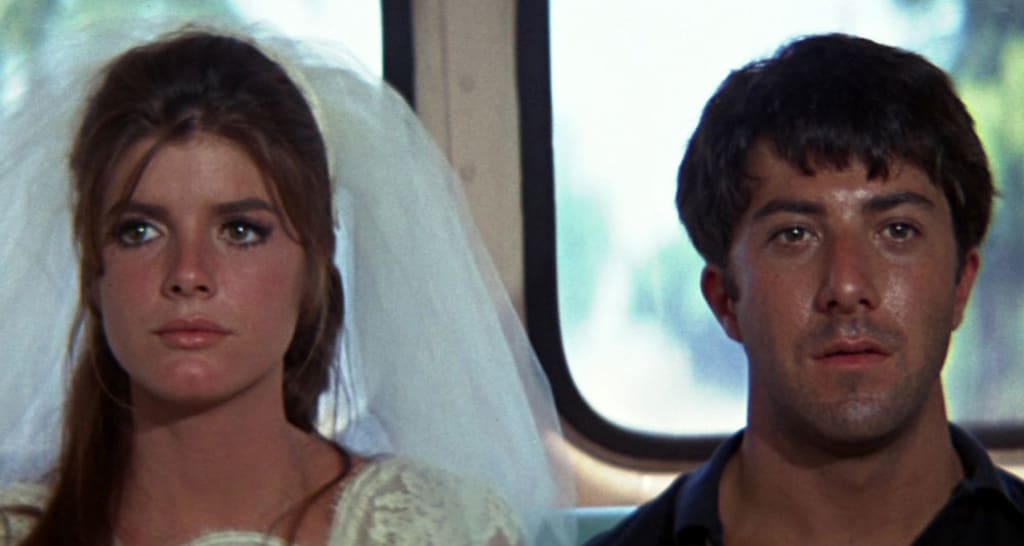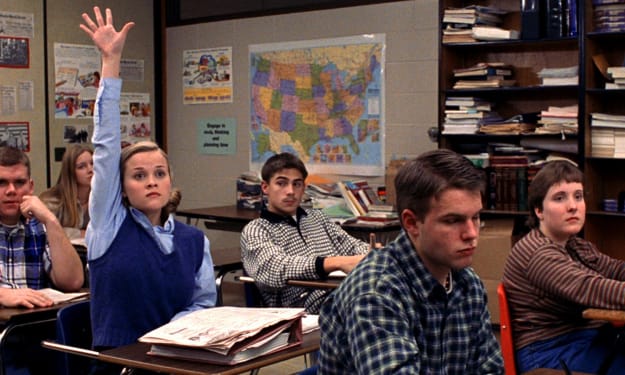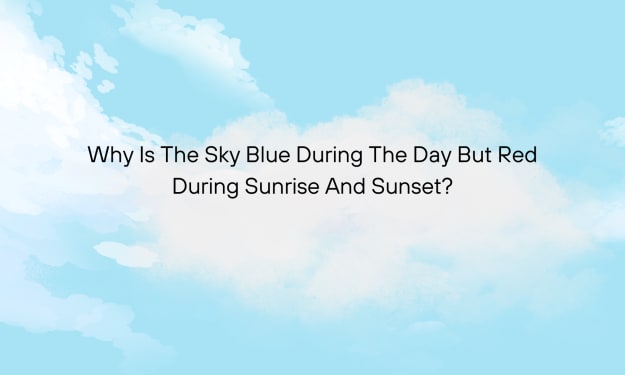How "The Graduate" Inspired the Future of Film
“Mrs. Robinson, would you like to go to a movie?”

Like a funhouse mirror reflecting a distorted reality, Film often works as an adjusted reflection of its current history. It gives unique commentary on certain social-political views to shed light on new or seemingly hidden perspectives, attaching itself to its audience. Mike Nichol’s film adaption, The Graduate does a great job of this by portraying its time as well as it’s audience in a colloquial way. “There was already a growing dissatisfaction with the status quo and middle-class values, and the breakthrough film mirrored that anarchic mood perfectly for America's youth of the 60s during the escalation of the Vietnam War” says AMC’s Filmsite Review. However, the film also became a classic trope in pop culture, being alluded by many TV shows, such as The Wonder Years, Saved by the Bell, The Simpsons and more. The Graduate was marketed towards the youth of the late 1960’s, but the film surpassed it’s expectations, inspiring future generations of filmmakers and appealing to today's youth.
The Graduate was a hit during the film’s debut, being the 22nd highest grossing film in the U.S. and in Canada. The film’s adjusted gross was 770 million, beating Disney’s Fantasia, ranking at #21. Wow! “The theme of an innocent and confused youth who is exploited, mis-directed, seduced (literally and figuratively) and betrayed by a corrupt, decadent, and discredited older generation (that finds its stability in "plastics") was well understood by film audiences and captured the spirit of the times. One of the film's posters proclaimed the difficult coming-of-age for the recent, aimless college graduate: This is Benjamin. He's a little worried about his future”. This is exactly what the film set out to do, and more. Further analyzing the film’s poster, one could say being “worried about [the] future” is certainly something many young adults can relate to. According to The Guardian, “Meeting people, making friends for life and discovering new interests: these are the things that have not changed for students who are following the same route to independence as their parents”. The article widely refers to the parents that were young adults and students in the 60s. Though there are many differences students have to endure now, many tasks fall in parallel to how and what their parents endured. The painful reality of the situations that Benjamin found himself in within the film, ultimately charmed its young audiences in a way that made them completely understand the crazy dilemma of Dustin Hoffman’s character. Roger Ebert talks a little bit about this in his film review of The Graduate. “Dustin Hoffman is so painfully awkward and ethical that we are forced to admit we would act pretty much as he does, even in his most extreme moments”. These ideals from the film have aged nicely. Audiences today still find this film relatable and special in a deep level, which is the greatest thing that Mike Nichols could have hoped for. Since December of 1967, the film has had 3 different re-releases in the United States, proving that even younger audiences today cannot get enough of this now considered ‘Classic’. The most recent release of this film dates back to April of 2017. 50 years of appreciation never hurt anybody.
Now, why is this film so revolutionary? Being alluded to a couple dozen times, The Graduate is now considered a well-known trope in Pop-Culture history. The familiar Simon and Garfunkel song “Sound of Silence” is an entity of its own, becoming inside jokes to many in videos and vines around the Internet. Many films and TV shows have depicted characters relaxing by the poolside, alluding to Ben spending his summer days, daydreaming, and his summer nights in Mrs. Robinson. For instance, Wes Anderson’s 1998 film Rushmore depicts a similar yet underwhelming relationship alike to The Graduate. The film tells a story about a young man who is interested in an older woman who works at an elementary school near the private school of the main character, played by Jason Schwartzman. Though Wes Anderson's film takes a spin on the original plot, many parallels exist in that film that purposely remind audiences of the previous relationship between Ben and Mrs. Robinson. The very quote of Ben asking Mrs. Robinson “Are you trying to seduce me” has been mentioned in countless medias, such as Malcolm in the Middle, Buffy the Vampire Slayer, and more. The understanding of this is simple. Everyone loves bit of nostalgia. But, getting deeper to the route of this phenomenon, it is safe to say that The Graduate has done a great job of inspiring many filmmakers. Though many allusions are seen as odes to the famous film, Filmmakers like Wes Anderson take the memory and feeling of The Graduate and use it to make new stories that end up appealing to the youth of today as well.
The film that uses The Graduate in the most creative way is 500 Days of Summer directed by Marc Webb. Though it didn't perform as well as The Graduate, 500 Days of Summer did a good job of appealing to this generations young audience, grossing 30 million in November of 2009. The film’s plot has a lot of references to The Graduate. In the first couple minutes of the film, main character, Tom is seen as a kid watching TV. The narrator explains, “The boy, Tom Hansen of Margate, New Jersey, grew up believing that he'd never truly be happy until the day he met ‘the one’. This belief stemmed from early exposure to sad British pop music and a total misreading of the movie ‘The Graduate’”. 500 Days of Summer existing as a film helps prove that The Graduate inspired future filmmakers. The Graduate is literally cited within the film and sets the tone and the theme in 500 Days of Summer. A cameo of the film shows up toward the end of the 500 Days of Summer when Summer, the love interest of Tom, cries as she watches the ending of The Graduate in a theater. This is hidden commentary on the way different individuals read films, and also how deeply film can influence the lives of regular people and their decisions. 500 Days of Summer is based on the true romances that writers Scott Neustadter and Michael H. Weber went through in their lives. It is also interesting that this film gives such a strong ode to The Graduate because it displays the differences in why newer generations may care about the film. The actual ending of The Graduate shows Benjamin and Elaine ditching a wedding to catch a bus going God knows where. The look on the two characters faces signal discomfort and discontent as the bus drives on, proving that even though Ben and Elaine both chose to leave together, they ultimately made the wrong decision; impulsively reacting to a real life situation instead of dealing with it rationally. The two characters realize that as much as they resisted being like their parents, they will ultimately end up like their parents. The cynical cycle repeats itself; a sad ending that many films depicted in the late 60s. In 500 Days of Summer, Summer is watching the ending of The Graduate in a Theater with her boyfriend, Tom and she is crying because this is the part in the film where she realizes that Tom is the wrong person for her. It’s a buildup of release that comes out at the most unexpected time for Tom. In this film, Tom is in love with Summer, and though Summer likes him very much, she doesn't feel the same way for him as he feels for her. Films like 500 Days of Summer, and even Rushmore probably wouldn't exist today without The Graduate. Many young audiences seek to find the meaning of true love in film, though some of us don’t always admit to it. And though young audiences are left to analyze these things, The Graduate exists as a helping hand to this generation, forming questions to answers that have not yet been asked, and giving the younger audiences a small bit of solace as they navigate through the heavy woes of the world.
Looking at this films marketing, reception, and influence, it is safe to say that The Graduate surpassed its expectations, inspiring future generations of filmmakers and appealing to today's youth. The film has literally been referenced so many times that it has become a classic Pop Culture allusion. A typical young American who has never seen The Graduate could not only watch this film and enjoy it, but could probably also recognize its many references and allusions that are still seen on TV today. Our parents enjoyed this film as much as we still enjoy it, and will enjoy it for many years to come. That’s more than any filmmaker could ask for. What a success. Maybe in a couple decades, there will be a 75th anniversary to The Graduate and it will re-release again, continuing to inspire more future filmmakers. One would not be surprised.
About the Creator
Mariah Mickens
linktr.ee/Mariah_Mickens






Comments
There are no comments for this story
Be the first to respond and start the conversation.